The new normal
For many, beekeeping associations provide the bookends that bracket the practical beekeeping season. In meetings during the dark, wet, cold winter months we can at least discuss bees, reminisce about the season just gone or plan for the season ahead.
Usually with tea and biscuits 🙂
Or in the more civilised associations (and a quick plug here for the Fortingall & District BKA) with fantastic homemade cakes 😉

Elderflower lemon drizzle cake
Beekeeping associations, through the training and social events that they organise and the contacts that they enable, provide an important support framework for beekeepers, both new and old.
Training new beekeepers is one important function associations provide, but more experienced beekeepers also benefit from co-operative purchasing schemes for foundation or fondant {{1}} and – of course – from the winter seminar programmes.
Double whammy
The Covid-19 pandemic has dealt a double whammy to many associations.
Training events, necessitating flagrant breaches of social distancing during hands-on practical beekeeping demonstrations, are a problem. Many associations delivered the theoretical coursework before lockdown was imposed, but were subsequently unable to provide the practical component of the training for beginners.
It’s difficult to spot the queen from 50 centimetres sometimes, let alone 2 metres.
The independent first inspections for 2020 beginners are likely to have been a pretty tough challenge for many. Congratulations to those who got through them and the rest of the season with little support.
I’m hearing that some associations have cancelled or postponed all training events for the ’20/’21 winter season.
The imposition of lockdown {{2}} in March probably had little impact on the ’19/’20 winter seminar programmes, but they’re likely to have a significant impact going forwards.
I give quite a few talks on science and practical beekeeping in most winters. Audiences and venues vary, depending on the association. I’ve talked in drafty church halls to groups of 15, or swanky conference centres to ten times that number.
There is always a good turnout by new beekeepers, or even by those who have yet to start keeping bees.

Not your typical beekeeping audience … or church hall
However, there is generally a gender imbalance, with more men than women attending. And – and I’m afraid there’s no gentler way to write this – there’s an age imbalance as well, with the enthusiastic young ‘uns outnumbered by older, and in some cases old, beekeepers.
Statistics
This age and gender imbalance inevitably make the ’20/’21 winter seminar programmes an endangered species, at least in the format we’ve grown used to over past seasons.
If you look at the statistics for serious Covid-19 cases it is clear that there is a strong bias towards elderly males. There are other biases as well … underlying medical complications and ethnicity also have a major influence, though whether the latter is socio-economic, genetic or due to the presence of comorbidities remains unclear.
All of which means that spending an hour in a drafty church hall listening to a talk on bait hives is probably unwise … not least because the social distancing needed precludes any chance to huddle together for warmth when the one bar electric heater blows a fuse.
Zoom …
In the brave new, socially distanced, world we’re currently inhabiting, drafty church halls and excellent homemade cakes are now just a distant memory.
Instead we have Teams talks, Demio demonstrations and WebEx webinars.
And Zoom, but I can’t think of a suitable alliteration to go with Zoom 🙁
For many office-based workers, lockdown resulted in the substitution of boardroom meetings with spare bedroom virtual meetings.
Hastily repurposed guest bedrooms have become home offices. The combination of IKEA furniture, a reasonably recent laptop and a fast internet connection has enabled ‘business as usual’.
Almost.
All of my meetings – with administrators, colleagues, my research team and students – have been online since late March (and in certain cases since early March).
Academics are used to collaborating globally and so were already familiar with Zoom, Teams or Skype for conference calls and job interviews. These have just continued {{3}}, and been extended to now include all the in-person meetings that used to happen.
One or two colleagues have embraced this expanded use of the technology to have their own ‘green screens’. This allows their head and upper torso to be projected in front of a selected image – of a tropical beach, their favourite golf course or local boozer.
The really professional ones even change out of their pyjamas before calls … 😉
But many beekeepers will be largely unfamiliar with the technology and the advantages it offers … and disadvantages it imposes.
Online beekeeping talks
I’ve both attended and delivered online beekeeping talks. Not a huge number, but enough to have a fair idea of what works and what doesn’t. In addition, I’ve taken part – as audience or presenter – in hundreds of non-beekeeping online events.
For readers who have yet to take part here’s a general guide of what to expect.
The speaker and topic are advertised in advance and those interested in listening/watching register to attend. The talk is hosted by the beekeeping association who provide a ‘chairperson’ or ‘master of ceremonies’. This person has the unenviable task of dealing with the speaker, the technology and the audience.
And two of these three might do something incomprehensibly stupid … and the internet can break.
On the evening of the talk {{4}} you login via a website (using a username/password provided on registration) and launch the necessary software to take part in the event.
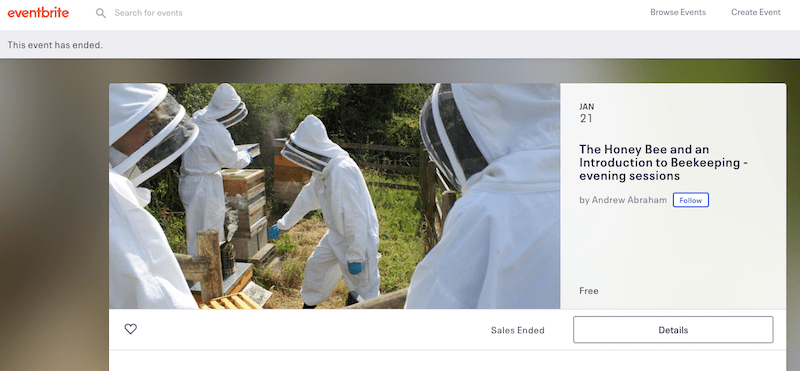
Eventbrite beekeeping talk
Sometimes this can be through the web browser, but – more usually – it involves downloading and installing software onto your computer. Which might be an issue for some people wanting to take part. Do this in advance of the start time of the talk, not in the last 2 minutes before kickoff.
After an introduction by the chairperson, control of the graphics is usually handed to the speaker who delivers the talk. To avoid awkward ‘noises off’ {{5}} the chairperson usually mutes all other microphones
Why unenviable?
I previously described the chairpersons role as unenviable.
While the speaker blathers away the chair is probably:
- dealing with email enquiries about how to launch the software
- justifying why there isn’t a video of the speaker actually speaking (it’s turned off to save bandwidth), and
- telling someone that they are the only person unable to hear the presenter. Therefore, it must be their audio output settings that are wrong.
And if that isn’t enough, the chair will be collecting and collating questions during and after the talk, for reasons I’ll discuss shortly.
Finally, it’s not unusual for the chair to also ensure that the talk is recorded so that those who couldn’t download the software or hear the presenter can attempt to listen to it in the future.
That’s a lot to deal with.
Questions and answers
Good talks generate questions.
As a speaker, there’s nothing worse than a talk being met by an echoing wall of silence.
Hello? Is there anybody [out] there? Just nod if you can hear me {{6}}.
Some are points of clarification, others are after elaboration or explanation of a contrary view.
Some questions are nothing whatsoever to do with the talk 😉
They might not even be about beekeeping.
All require an answer of some kind.
And this is where the technology gets in the way of communication.
Questions from the floor, in which the audience member switches on their microphone, clearly enunciates the question, and turns off the mike returning ‘control’ to the host and speaker cause delays.
Often significant delays. However, even short breaks interrupt good communication – think back to the lag on transatlantic satellite phone calls.
The speaker asks the question clearly … but omits to turn on the mike.
Or they fail to the turn off the mike, so the entire audience hears the follow up “and I hope he answers quickly as Strictly’s on in a few minutes”.
For a couple of questions this is just about acceptable. For twenty or thirty it is not.
So, the beleaguered chair takes written questions from the audience, collates them, removes duplicates … and then asks the presenter on behalf of the audience.
I refer you back to the word ‘unenviable’. If you take part, cut the chair some slack …
Disadvantages of online talks
Unfortunately a subset of beekeepers who would have attended a gathering on the second Tuesday of the month in the church hall will never attend an online beekeeping talk.
For a start, they might not even own a computer.
They might – and I have considerable sympathy for this view – mainly attend talks for the craic, the opportunity to catch up with friends and the chance of some homemade lemon drizzle cake.
All of those are good reasons to attend a talk in person … and in the case of lemon drizzle cake I’d say a compelling reason to attend 😉
As a regular speaker at associations I’d add here that the craic and the homemade cake are the parts of the evening I enjoy the most. After all, I’ve heard the talk before. I might even have heard the questions before 😉
None of these more social things are achievable online. Everyone listens in their own little bubble, isolated from the shared experience.
If they can’t bake it’s going to be a long evening 🙁
For others, the technology will continue to be a problem. They can see the pictures but can’t hear the words. Or vice versa. Or worse …
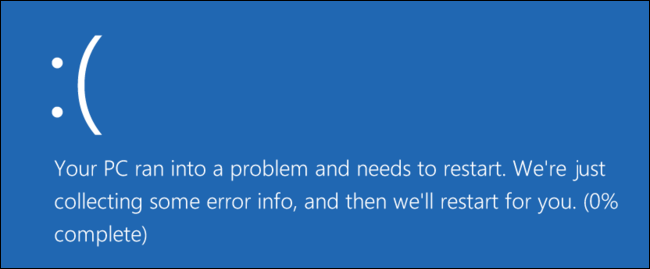
No Zoom for you …
The fact that 190 others don’t have the same problems just makes it a more frustrating and unrewarding experience. Being live, there’s no real chance of resolving these ‘local’ problems without delaying the talk and irritating the rest of the audience.
Over time the numbers unable to handle the technology will reduce.
In some cases it’ll be because they have learned to master it – either by perseverance, or by the beekeeping association providing some sort of training sessions.
In other cases it’ll be because they simply gave up 🙁
Like those who don’t have a computer in the first place, this means online talks are serving a different audience and some association members are likely to be excluded by the switch to online talks.
Advantages of online talks
But it’s not all bad news. I can see some benefits for both the speaker and audience from online presentations.
Associations can invite speakers from anywhere.
They don’t have to be from the same county.
Or the same country.
This broadens the topics that can be covered and provides the opportunity to discover different beekeeping practices from other areas (always remembering that this might simply confuse beginners).
There are some good speakers out there – just look through past programmes for the BBKA, SBA or WBKA Annual Conventions or the National Honey Show.
Associations can ‘share’ speakers by running joint events or inviting neighbouring association members to register.
As a speaker, this means that audiences tend to be larger. Bigger audiences are almost always better {{7}}. Since everyone is logging on, rather than driving across the county to the venue, there’s less chance a spot of bad weather will put people off.
This is a huge advantage for the speaker as well … I’ve regularly talked, answered questions, drunk tea, chatted, eaten lemon drizzle cake, drunk more tea, said my goodbyes and then driven for three hours to get home {{8}}.
I’ve also had to cancel talks at relatively short notice due to ‘adverse driving conditions’ – which in Scotland means a bit more than a dusting of snow.
None of that happens in our brave new digital world.
Is this the new normal?
For the foreseeable future I think it is. The national lockdown is being replaced by local restrictions where virus transmission is increasing. However, school and university students have yet to return and this will likely lead to increased transmission in some areas (in Scotland, we’re already seeing this, though transmission is usually ascribed to “unregulated house parties” rather than within the school {{9}} ).
A vaccine remains some way off. It’ll be even longer until we have vaccinated a large enough proportion of the population to interrupt transmission.
Or to know how long immunity lasts.
All of which means that indoor social events, like talks about bait hives or swarm control, are likely to be undesirable, unattractive or simply not allowed.
What can we do to improve things?
Delivering a talk online is a very much less rewarding experience than doing so in person.
There’s no ability to properly engage with the audience – no banter, no eye contact, no jokey comments.
You can’t tell whether the old boy in the back row has switched off or just nodded off.
Or perhaps he’s simply cheesed off because he disagrees with everything I’m saying.
You don’t necessarily know who is in the audience – you might know overall numbers, but not whether the local bee inspector or beefarmer is logged on. Knowledge of the audience can influence the way you pitch a talk.
It’s an oddly sterile undertaking. This makes judging the pacing and content of the talk very much more difficult. With a live audience it’s usually possible to tell whether they’re ‘keeping up’ or ‘tuning out’. You can’t do this online.
If the audience is present you can ask questions and get immediate answers … anyone who has heard me talk will know I ask about drifting and ‘how many of your bees are your bees?’. There are ways of doing this online, but it requires familiarity with more software (or additional features of the current software).
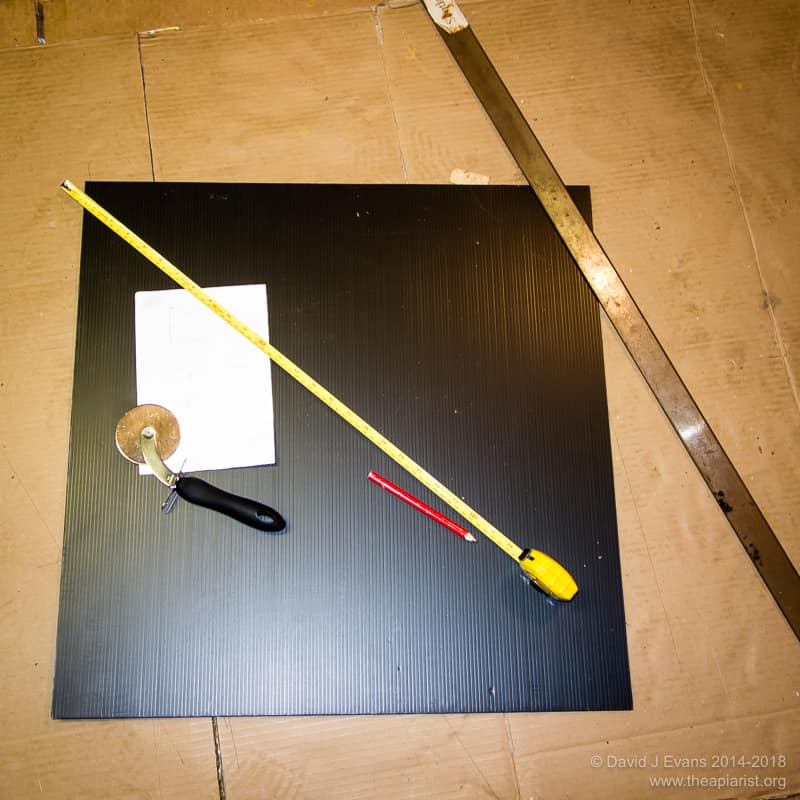
Practical demonstrations and online presentations – tricky
In the meantime …
- Associations can help their members embrace the technology by providing limited training where it is needed.
- Think creatively about topics that can be covered within the limitations of the technology. For example, some of the talks I’ve been to in person have had a practical component. I’ve attended excellent candle dipping and skep making workshops {{10}}. Likewise, I talk about DIY for beekeeping which involves handing round examples of my
hastily cobbled togetherbeautifully crafted floors or roofs. These sorts of things might be achievable entirely online, perhaps with more videos. However, preparing these will certainly require a lot more work by the presenter to be effective. - Provide feedback to speakers – what worked and what didn’t work?
Welcome to the new normal … I hope to “see” you online sometime 🙂
Notes
The new normal means “a previously atypical or unfamiliar situation, behaviour, etc., which has become standard, usual, or expected” (OED). Although now associated with the Covid-19 pandemic, it’s usage can be traced back over 200 years. The big increase in usage was in reference to the 2008 financial crisis, and – historically – it is often used in reference to economic events.
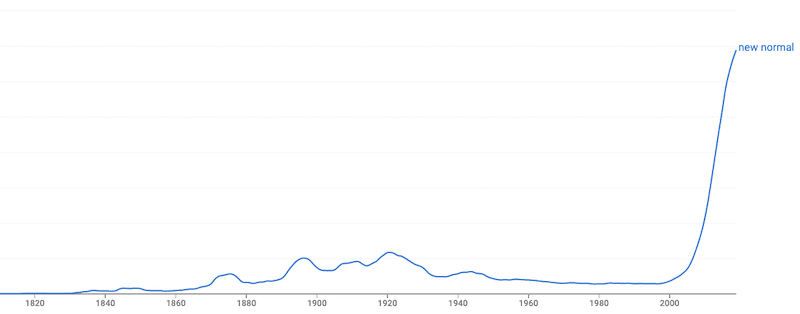
The new normal – Google ngram results
{{1}}: And in the best organised associations, for honey buckets, jars, beesuits and just about everything else – with a small part of the negotiated discount being held back to fund association events.
{{2}}: too late
{{3}}: Ad nauseam
{{4}}: In the UK they’re usually evening events … but if you’re a speaker at an event run by a beekeeping association in Idaho then it’s the middle of the night in the UK. This is not an insignificant matter.
{{5}}: What the hell does he think he’s talking about?
{{6}}: With apologies to Pink Floyd … Comfortably numb from The Wall.
{{7}}: But remember, the more associations share speakers, the range of available novel speakers and topics topics will be reduced.
{{8}}: Usually regretting the last cup of tea.
{{9}}: A ‘regulated’ house party sounds like an oxymoron to me … but I was a student a very long time ago, perhaps things are different now?
{{10}}: My – frankly pathetic – single-handed attempts subsequently are all to do with my “hands like feet” and nothing to do with the training I received.
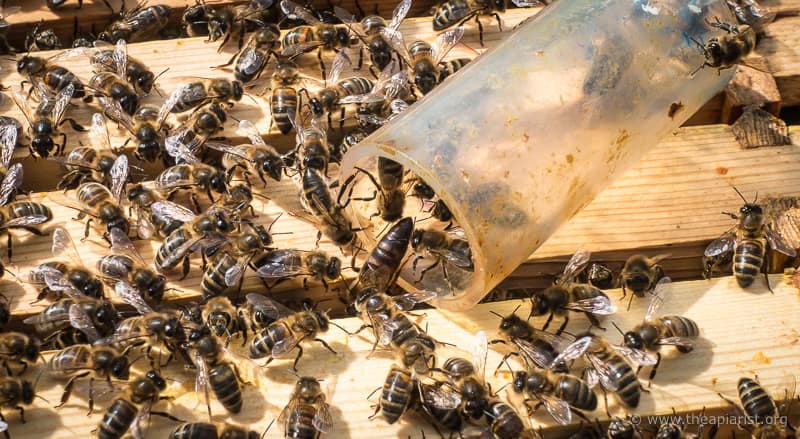


Join the discussion ...